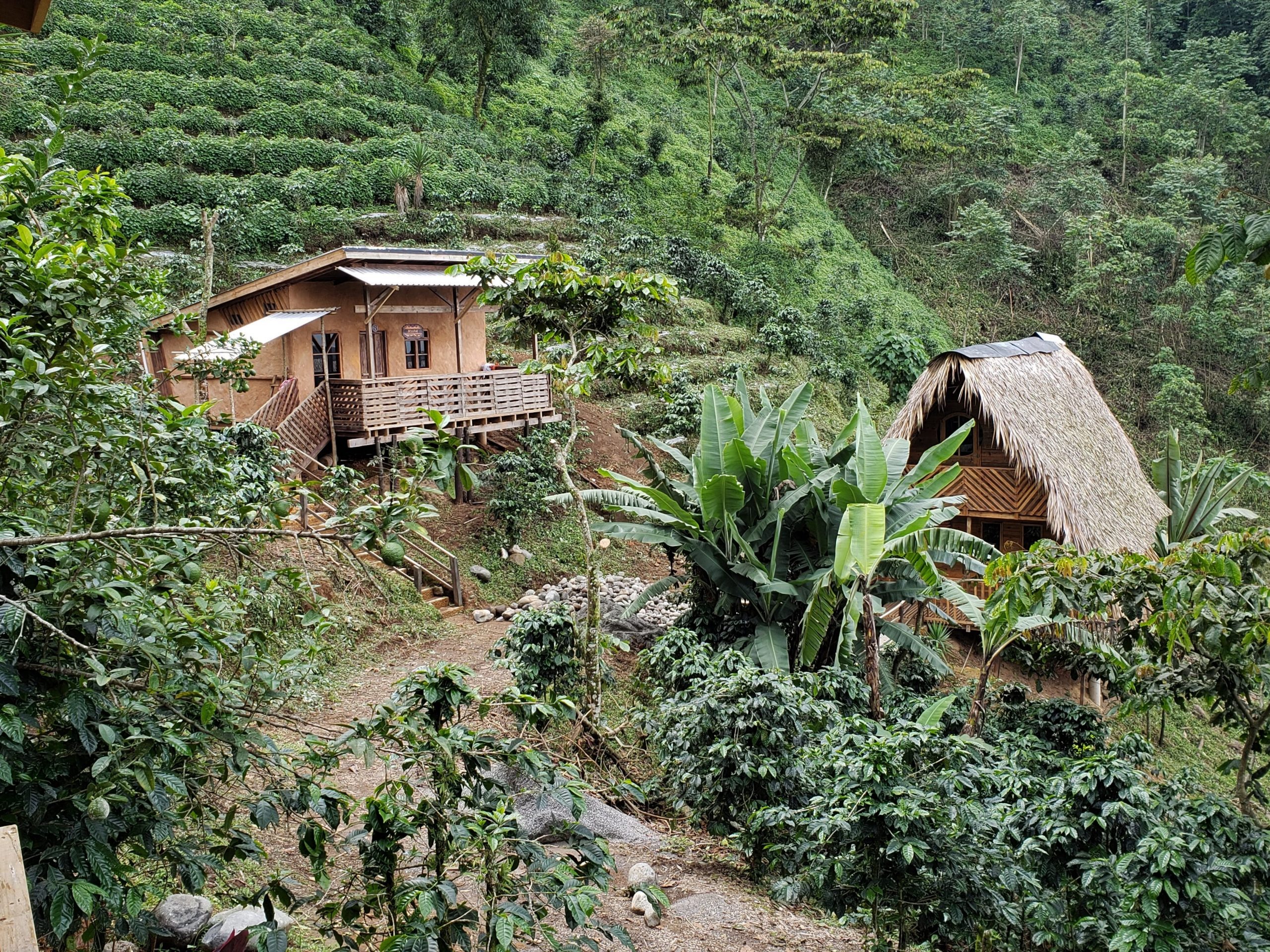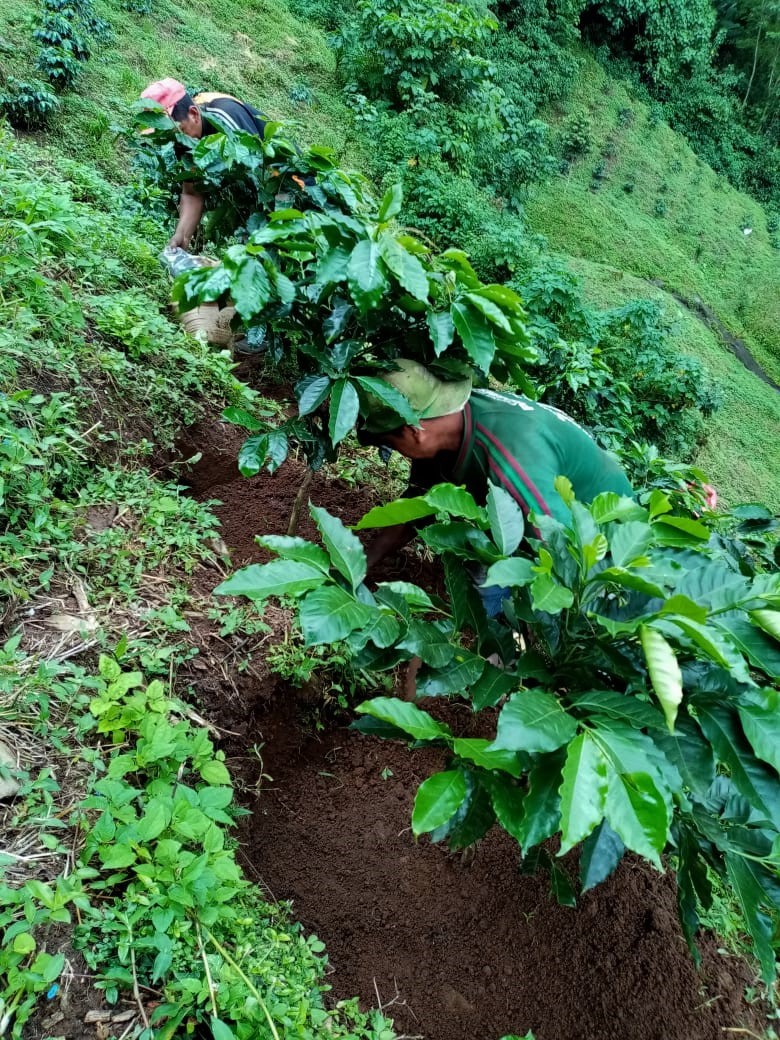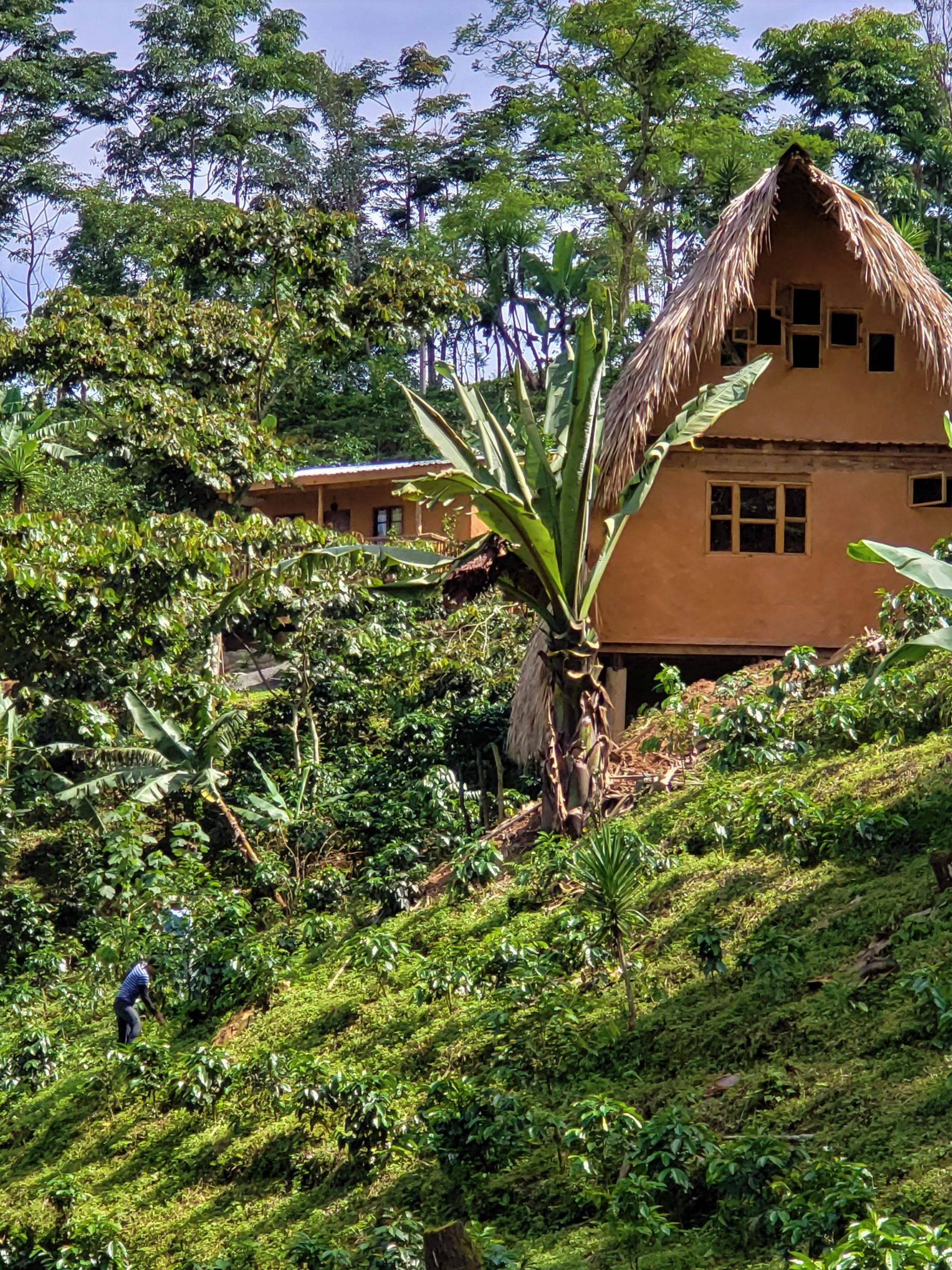GUATEMALA ORGANIC SAN MARCOS EL VERGEL ECOTACT
Bags 0
Warehouses Oakland
Flavor Profile Citrus, nougat, chocolate, syrupy
Out of stock
About this coffee
Grower
Finca Experimental El Vergel
Altitude
1641 masl
Variety
Caturra, Anacafe 14, Maragogype, Obata
Soil
Volcanic loam
Region
San Rafael Pie de la Cuesta, San Marcos Department, Guatemala
Process
Fully washed and dried on raised beds
Harvest
January - April
Certification
Organic
Coffee Background
The San Marcos department runs alongside the Huehuetenango department in Guatemala’s northwest, and has a similarly stellar reputation for coffee quality. This part of the country is highly volcanic, steep, and extremely fertile—it is no surprise there are copious organic certified producers in San Marcos benefitting from such ideal coffee conditions and reinvesting what they can to maintain these resources.
Finca Experimental El Vergel (“the orchard”), is owned and managed by a specialty exporter organization, Federación Comercializadora de Café Especial de Guatemala (FECCEG), an umbrella organization that manages logistics, quality analysis, and marketing on behalf of select smallholder groups across Guatemala. The 24-hectare property sits in a corridor of cloud forest close to the base of Volcán Tajumulco and within a land reserve that is part of the San Rafael Pie de la Cuesta municipality. The farm was originally acquired in 2013 by FECCEG as an experimental and demonstration farm, meant to showcase organic agricultural methods and a high level of biodiversity, both to the benefit of the final coffee. El Vergel is currently the site of a World Coffee Research variety trial and includes small plots of Marsellesa, Obata, Anacafe 14, and various sarchimors, all monitored for viability in the local climate. The farm also produces taro, bananas, bamboo, and sheep for wool.
Processing at El Vergel is, as you might expect, very precise: cherry is carefully pre-sorted and then mechanically de-pulped and de-mucilaged using a Penagos machine, a globally-renowned water-efficient device that uses friction and water pressure to remove mucilage prior to fermentation. Once de-pulped and de-mucilaged, parchment is fermented in concrete tanks for 15-24 hours and then washed in fresh water from one of the farm’s 4 natural springs on site. Drying takes place in a series of greenhouses and solar dryers. Once complete, finished parchment is transported to FECCEG’s main dry mill for coding, sampling, and quality analysis. This year’s coffee is highly sweet and uniquely bright, reminding us of dessert wine, ripe Sun Gold tomato, banana, and chocolate.








